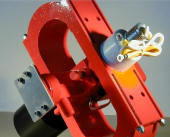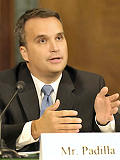 BIS released yesterday information on a default judgment entered against Daqing Zhou for arranging the export of microwave transmitters covered by ECCN 3A001 to China. Microwave amplifiers are used in a number of military applications including radar, communications and communications countermeasures. Because Zhou lives in China, BIS wisely determined that it wouldn’t be able to collect a fine from Zhou and so imposed instead a twenty-year denial of export privileges.
BIS released yesterday information on a default judgment entered against Daqing Zhou for arranging the export of microwave transmitters covered by ECCN 3A001 to China. Microwave amplifiers are used in a number of military applications including radar, communications and communications countermeasures. Because Zhou lives in China, BIS wisely determined that it wouldn’t be able to collect a fine from Zhou and so imposed instead a twenty-year denial of export privileges.
This case is a continuation of sorts of the indictment, prosecution, conviction and imprisonment of three owners and one employee of Manten Electronics in New Jersey earlier this year. Manten shipped approximately $400,000 of dual-use electronics to China. At the sentencing hearing, the defendants admitted to employing a variety of techniques to conceal the exports, including falsely describing the exports on the Shipper’s Export Declarations for those items. The President of Manten was sentenced to 36 to 44 months. Mr. Zhou appears to be a Chinese employee of the Manten Electronics’ office in Beijing.
Because Mr. Zhou, not surprisingly, failed to answer the BIS charging letter which BIS sent by FedEx to China, the BIS was forced to use default procedures to impose the penalty on Mr. Zhou. This meant referring the matter to an Administrative Law Judge for a recommended penalty — an expense of government resources that seems hard to justify in this case.

 Posted by
Posted by  Category:
Category: 

 The Daytona Beach News-Journal
The Daytona Beach News-Journal  An
An  In a
In a  At yesterday’s Export Update Conference conducted by BIS, Christopher Padilla, Assistant Secretary for Export Administration,
At yesterday’s Export Update Conference conducted by BIS, Christopher Padilla, Assistant Secretary for Export Administration, 

